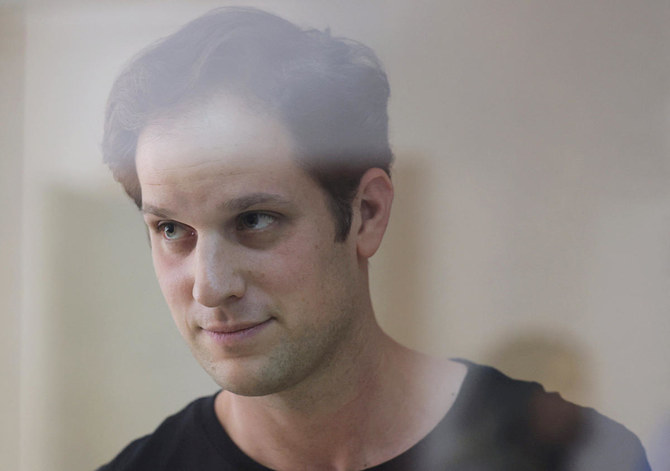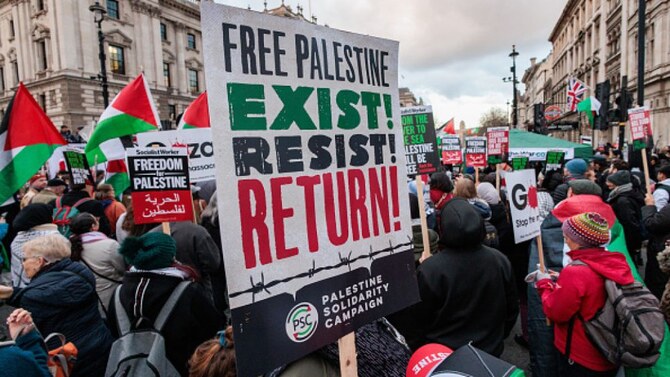WASHINGTON: Russia on Monday granted the United States consular access to jailed Wall Street Journal journalist Evan Gershkovich after a more than two-month gap, with the US ambassador reporting him in good health.
The State Department said Ambassador Lynne Tracy met Gershkovich at the Lefortovo prison in Moscow, only her second such meeting with him since he was arrested on March 29 during a reporting trip in the Urals.
“Ambassador Tracy reports that Mr. Gershkovich is in good health and remains strong, despite his circumstances,” a State Department spokesperson said.
Gershkovich, who previously worked for AFP, is the first Western journalist arrested and accused of espionage by Moscow since the Soviet era, amid a sharp deterioration of relations over the Ukraine war.
The United States, The Wall Street Journal and Gershkovich strongly deny he was a spy.
The State Department said it would keep pressing for Gershkovich’s release and, until then, for consistent consular visits.
“US embassy officials will continue to provide all appropriate support to Mr. Gershkovich and his family, and we expect Russian authorities to provide continued consular access,” the spokesperson said.
Russia had denied requests for further visits after the ambassador’s April meeting, drawing protests from Washington that Russia was violating protocol.
Russia indicated it was retaliating for the United States not issuing visas for Russian state-affiliated media who sought to visit New York during a trip to the United Nations by Foreign Minister Sergei Lavrov.
Secretary of State Antony Blinken, speaking last week at the Council on Foreign Relations, voiced concern about Russia’s denial of consular access to Gershkovich and said the United States was pushing “virtually every day.”
“At the same time, we are continuing to explore ways to bring him home,” as well as Paul Whelan, a former US Marine jailed for more than four years, Blinken said.
Tracy last saw Whelan in May. He is imprisoned in Mordovia, some 400 kilometers (250 miles) southeast of Moscow, a region notorious for harsh prisons.
A Moscow court on June 22 rejected an appeal to free Gershkovich. Tracy attended the hearing and said the United States was “extremely disappointed.”
The United States has sharply curtailed high-level contact with Russia since the invasion of Ukraine in February 2022 but has made contact to arrange two prisoner swaps.
In December, Russia freed basketball star Brittney Griner, who was arrested over traces of cannabis, in return for the release of Viktor Bout, imprisoned in the United States over weapons smuggling.
























